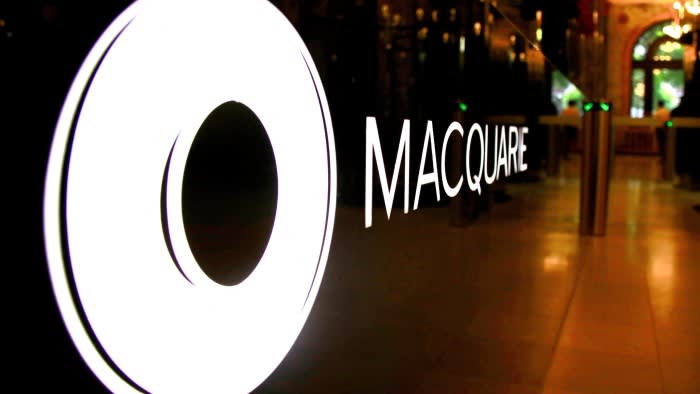Unlock the Editor’s Digest for free
Roula Khalaf, Editor of the FT, selects her favourite stories in this weekly newsletter.
Macquarie is set to take full control of Britain’s core gas transmission network in a roughly £700mn deal, as the world’s largest infrastructure investor bets on an enduring future for gas pipelines despite the UK’s efforts to shift away from fossil fuels.
The Australian bank has exercised its option to buy the final fifth it did not already hold of National Gas, which owns the 7,660-km network, from the FTSE 100’s National Grid.
The deal comes at a critical time for UK infrastructure as the new Labour government pushes for asset managers and pension funds to invest more in the sector.
Macquarie agreed to buy a 60 per cent stake in National Gas for £4.2bn in 2022 with its consortium partner British Columbia Investment Management Corporation. They added a further 20 per cent last year, as National Grid continued to shift its weighting towards electricity and away from fossil fuels. The new purchase is valued at about £700mn, according to one person close to the deal.
The transaction comes as the UK tries to move away from natural gas, which supplied about 38 per cent of the UK’s energy in 2022, as part of its push to cut carbon dioxide emissions to reach its legally binding goal of net zero by 2050.
It underlines different visions of how Britain’s energy system will evolve, with Macquarie betting on hydrogen playing a bigger role.
National Gas has been working on plans to carry hydrogen through its network instead of natural gas, despite significant uncertainty about the role hydrogen will play in the future energy system.
Hydrogen is being eyed as a potential replacement for fossil fuels in heavy industry and heavy transport, but very little of it is currently made in a low carbon way, and the shift will require large state support.
Colm Gibson, managing director of regulated assets at Berkeley Research Group, said: “People have been quick to dismiss hydrogen but it could play a major role in decarbonising the UK and Macquarie has positioned itself to take advantage of that; it may also be banking on the fact that the transition timetable is unclear and may take longer than people think.”
The National Infrastructure Commission, which advises the government, has backed a role for hydrogen in the industrial sector and says “core networks of infrastructure to transmit and store hydrogen and carbon are essential by 2035”.
However, it advised the government not to back hydrogen in home heating, raising further doubts over the future of the gas distribution networks which take hydrogen to people’s homes.
Macquarie already owns a stake in Cadent — which runs half of the eight local gas distribution networks — but has been trying to cut its position, joining forces with another shareholder to sell a combined £1.3bn stake in the company.
It is understood that the sale is part of a “standard portfolio rebalancing” and that Macquarie will still retain a sizeable 20 per cent stake in Cadent, which provides gas to 11mn homes and businesses in England.
Macquarie is the biggest private sector owner of infrastructure assets in the world and one of the largest in the UK, with stakes in everything from wind farms to airports and telecoms networks.
It is best known for its former ownership of crisis-hit Thames Water, the largest water utility in the UK, which is struggling under the weight of more than £18bn debt and may be forced into the government’s special administration scheme — a form of temporary renationalisation.
Macquarie’s ownership of Thames Water has been widely criticised after the utility’s debt increased from £3.4bn in 2006, when it bought into the business, to £10.8bn when it sold its final stake in 2017, according to Financial Times research.
About £2.7bn was taken out in dividends and £2.2bn in loans during that period, although Macquarie has said it spent £11bn from customer bills on infrastructure.
The deal for National Gas is expected to complete in the first quarter of 2025.


